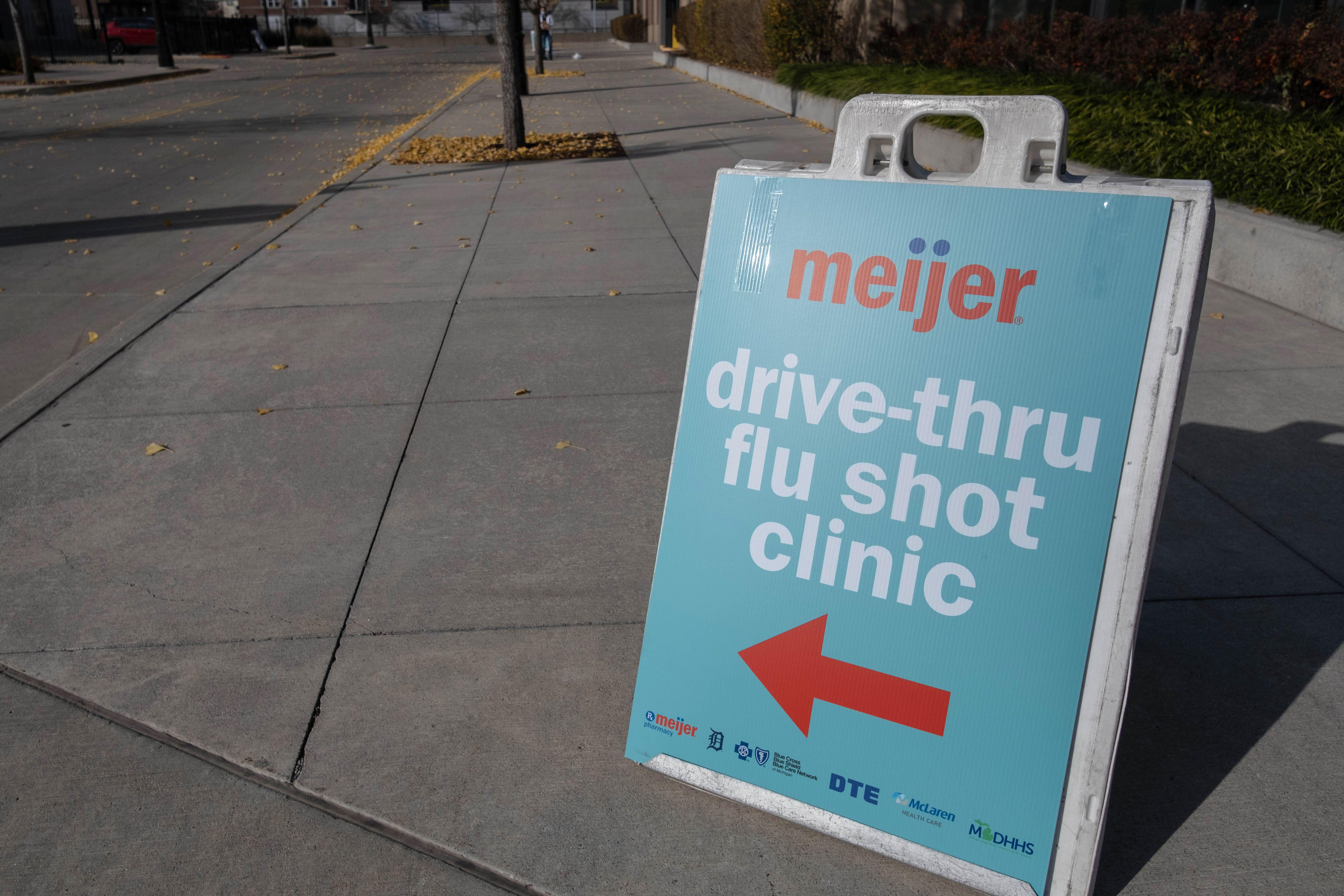Last week, I got my annual flu shot. I can’t remember a year when I’ve experienced any of the known side effects of the flu vaccine. Typically, I get my shot and I go about my business. But this time was different. I was fatigued and had noticeable arm pain for about three days afterward.
It turns out, I was not alone. After seeing anecdotal evidence of what Atlantic writer Amanda Mull called an “extra spicy” shot, I called three infectious disease doctors to ask them if there really are more intense reactions this year. Their responses have been edited and condensed for clarity.
Julia Craven: Is the flu shot “worse,” meaning people might experience stronger side effects, this year?
Arnold Monto, an epidemiology professor at the University of Michigan: People are sensitized to side effects because they received COVID vaccines, which are known to produce side effects. They’re more likely to be looking for or perceiving something as side effects that they wouldn’t have bothered to [notice] before. A reasonable percentage of people get a sore arm [from the flu vaccine], but beyond that, the percentage of people who have any kind of side effect is quite low. That data really doesn’t fluctuate from year to year.
All the flu vaccines are quadrivalent this year, meaning that they contain four strains of the influenza virus. How could this affect symptoms?
Nasia Safdar, the medical director for infection prevention at the University of Wisconsin Hospital: It really shouldn’t. Quadrivalent vaccines have been available and most of us have been getting those for years. There is a high dose flu vaccine that is recommended for people who are older, and the arm tenderness might be a little bit more and it takes a little bit longer to recover.
William Schaffner, a professor of infectious diseases at Vanderbilt University Medical Center: The entire influenza vaccine manufacturing industry has been moving toward quadrivalent vaccines for a decade. And this year, everybody is there in all their formulations. That’s great since every vaccine will protect against four strains of the influenza virus. Quad is associated with about the same array of side effects as the older trivalent vaccine. Still, I’m very curious about this and look forward to getting more data as the vaccination season rolls out.
Could the side effects some people report feeling be more robust because many of us have avoided being sick for 18 plus months?
Safdar: I haven’t seen any data to support that.
Schaffner: The answer is we just don’t know because we haven’t had a precedent for this. There’s also speculation wondering, once the flu virus starts up again, will it cause more extensive disease because we have been less experienced with influenza through the last season. Again, there’s no clear indication that’s the case, but it’s an interesting question. And I’m afraid the answer to it is we’ll have to wait and see.
Are there any concerns that this flu season will be worse?
Safdar: We are concerned that it could be worse because earlier this year and last year we didn’t have much of a flu season at all—probably because schools were not in person and everybody was masking and staying home. There was that lost opportunity to develop immunity, which happens every year, and so this year, yes, it may well be worse.
Monto: Many people have speculated that since we didn’t really have a flu season last year, that this current winter may be a catch-up season. But that is only a hypothesis. One thing I think we can say reasonably confidently is that if we do see a flu season, it’s not going to be early. If we were going to see an early flu season starting around Thanksgiving, we would see the beginning of it all happening now.
When should people get the flu shot this year?
Safdar: Earlier is better. September and October are good times. It takes two weeks for your body to generate antibodies after the vaccine so you don’t want to leave it until too late. Sometimes people think they should wait until they see evidence of influenza circulating and that’s probably too late.
Why is it important to get the flu shot even if you’re still taking COVID precautions such as masking and not eating indoors?
Schaffner: Influenza is this other very nasty respiratory virus that affects people across the age spectrum. It affects older people and people with underlying illnesses of any age. And, each year we have children—including completely healthy children—die of influenza. Anything we can do to prevent that along with easing the impact on the health care system, which is already being impacted by COVID, is great.
The most common reason people do not get vaccinated is they don’t think this vaccine is all that good. We recognize that it varies in effectiveness from year to year, depending on the virus and the composition of the vaccine. But most people do not appreciate that even if you get the flu after getting the vaccine, you’re much less likely to have severe disease; it makes your disease milder. You’re less likely to require hospitalization, intensive care unit admission, and you’re less likely to die.
